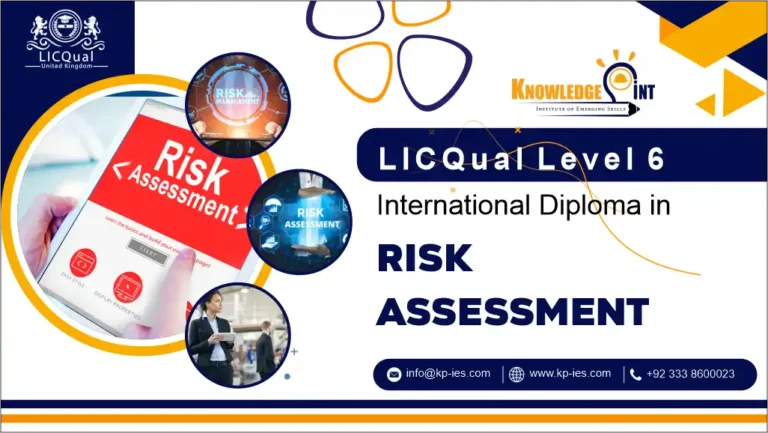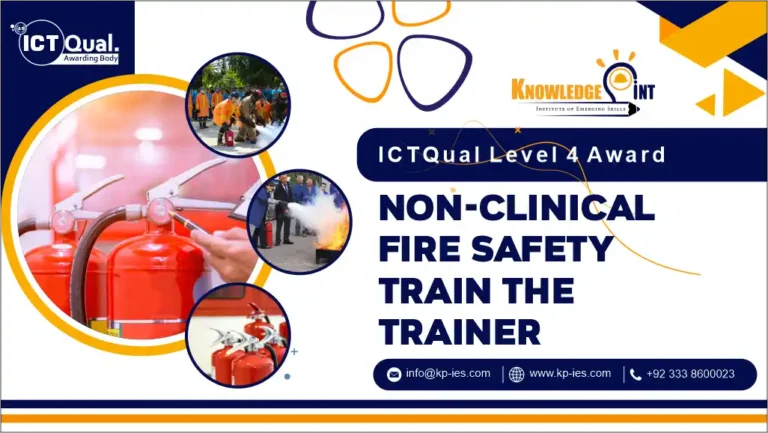Civil engineering is one of the most crucial and dynamic fields of engineering, shaping the infrastructure that supports modern society. For those looking to step into this exciting industry, the ICTQual Level 3 Diploma in Civil Engineering (60 Credits – 6 Months) offers an excellent introduction. This short, intensive qualification equips you with the foundational knowledge and skills necessary to begin a career in civil engineering or continue with further studies in the field. In this post, we’ll explore the key aspects and benefits of the ICTQual Level 3 Diploma in Civil Engineering and how it can propel your career forward.
The ICTQual Level 3 Diploma in Civil Engineering is a six-month program designed to provide you with the essential skills and knowledge needed to begin your journey in the civil engineering industry. The 60-credit qualification covers a variety of fundamental topics, ensuring you gain an understanding of key civil engineering principles, practices, and tools.
The ICTQual Level 3 Diploma in Civil Engineering (60 Credits – 6 Months) is an excellent choice for those looking to get started in civil engineering quickly and efficiently. Whether you’re aiming for an entry-level job in the industry or planning to further your studies, this diploma provides the fundamental knowledge and practical skills you need to take your first steps. With strong industry recognition, hands-on experience, and a clear progression route, it’s a valuable qualification for anyone looking to build a successful career in civil engineering.
Course Overview
The ICTQual Level 3 Diploma in Civil Engineering consists of 6 mandatory units which are as follows.
- Construction Technology and Materials
- Structural Mechanics and Design
- Site Surveying and Geotechnics
- Health, Safety, and Environmental Practices
- Project Management Fundamentals
- Civil Engineering Drawing and CAD
Learning Outcomes for ICTQual Level 3 Diploma in Civil Engineering
Here are the learning outcomes for the key topics covered in the ICTQual Level 3 Diploma in Civil Engineering:
1. Construction Technology and Materials
- Understand the fundamental principles of construction technology, including various construction methods, materials, and techniques used in modern civil engineering projects.
- Identify different construction materials (e.g., concrete, steel, timber) and their properties, and explain how they are selected for specific engineering applications.
- Apply knowledge of material properties to assess their suitability for various civil engineering projects, considering factors like strength, durability, and environmental impact.
- Demonstrate an understanding of construction processes and workflows, and how they impact project design, scheduling, and budgeting.
2. Structural Mechanics and Design
- Understand the basic principles of structural mechanics, including forces, moments, and stress analysis.
- Analyze simple structural components (e.g., beams, columns) to determine their strength and stability under load.
- Apply fundamental design principles for basic structures, including load calculations and material selection.
- Interpret structural drawings and blueprints to assist in the design, construction, and inspection of structures.
- Use computer-aided design (CAD) tools to model and analyze simple structural designs and perform basic structural calculations.
3. Site Surveying and Geotechnics
- Understand the basic principles and techniques of land surveying, including the use of surveying equipment such as total stations, levels, and GPS.
- Apply surveying techniques to measure distances, angles, and elevations accurately for construction projects.
- Interpret survey data and produce accurate site plans and topographical maps.
- Understand the principles of geotechnical engineering, including soil properties, soil mechanics, and the behavior of soil under different conditions.
- Evaluate the suitability of soil for construction purposes and assess potential risks associated with different types of ground conditions (e.g., stability, drainage).
4. Health, Safety, and Environmental Practices
- Understand the key health, safety, and environmental regulations and guidelines relevant to the civil engineering industry.
- Apply health and safety procedures to ensure a safe working environment on construction sites, including risk assessments and safety protocols.
- Identify common hazards in civil engineering projects (e.g., working at heights, machinery use, hazardous materials) and suggest appropriate safety measures to mitigate risks.
- Understand environmental practices in civil engineering, including waste management, pollution prevention, and sustainable construction practices.
- Promote a culture of safety and environmental responsibility on site through effective communication and compliance with standards.
5. Project Management Fundamentals
- Understand the basic principles of project management, including project planning, scheduling, budgeting, and resource management.
- Apply project management techniques to assist in organizing and executing civil engineering projects, ensuring timely completion and adherence to budget.
- Understand the importance of stakeholder management, communication, and teamwork in the successful completion of projects.
- Develop skills in managing project risks, resolving conflicts, and ensuring compliance with project specifications.
- Utilize project management tools (e.g., Gantt charts, cost estimations) to monitor progress and manage project timelines effectively.
6. Civil Engineering Drawing and CAD
- Understand the principles of civil engineering drawing, including the use of symbols, scales, and drawing conventions in creating engineering plans.
- Learn to read and interpret technical drawings, blueprints, and schematics related to civil engineering projects.
- Use CAD software to create and modify civil engineering drawings, including site plans, elevations, and cross-sections.
- Develop skills in creating 2D and 3D models of engineering projects using CAD tools, ensuring accuracy and compliance with design standards.
- Understand the role of civil engineering drawings in communication between engineers, contractors, and other stakeholders involved in construction projects.
Course Benefits of the ICTQual Level 3 Diploma in Civil Engineering (60 Credits – 6 Months)
The ICTQual Level 3 Diploma in Civil Engineering offers numerous benefits for individuals looking to start their career in civil engineering or those wishing to build a solid foundation for further studies in the field. Below are some of the key benefits of this course:
1. Fast-Track Career Entry
This six-month course is designed to quickly equip you with the essential skills and knowledge needed to begin a career in civil engineering. In just half a year, you can gain the foundational knowledge required for a variety of entry-level roles in the civil engineering sector, allowing you to start your professional journey without the lengthy time commitment of a traditional university degree.
2. Practical and Relevant Knowledge
The curriculum covers a wide range of topics relevant to real-world civil engineering projects, from construction technology to health and safety practices. You’ll gain practical, hands-on skills in areas like site surveying, project management, and structural design, ensuring you’re ready to contribute to actual construction projects.
3. Industry Recognition
The ICTQual Level 3 Diploma is recognized by employers within the civil engineering and construction industries. Completing this diploma demonstrates that you have received quality training, making you a more attractive candidate for civil engineering positions. This recognition increases your employability and career prospects in the competitive job market.
4. Foundation for Further Education
If you wish to advance your education in civil engineering, this diploma provides a solid foundation for progression to higher qualifications, such as the ICTQual Level 4 or Level 5 Diplomas or even a Bachelor’s degree in civil engineering. You can continue to specialize in areas like structural engineering, geotechnical engineering, or transportation engineering with further study.
5. Diverse Career Opportunities
Upon completing the course, you’ll be well-prepared for various entry-level roles, such as:
- Civil Engineering Technician
- Site Engineer Assistant
- Surveying Assistant
- Project Coordinator
- CAD Technician
These roles provide valuable industry experience and are a stepping stone to higher-level positions in civil engineering.
6. Development of Critical Soft Skills
In addition to technical knowledge, the course emphasizes the development of communication, teamwork, and problem-solving skills, which are essential in any engineering career. You’ll learn how to effectively communicate project requirements, manage teams, and address challenges that arise in civil engineering projects.
7. Cost-Effective
The ICTQual Level 3 Diploma is a cost-effective way to enter the civil engineering field. Compared to traditional degree programs, this course offers excellent value for money, providing you with a strong foundation of knowledge and practical skills in a relatively short period at a fraction of the cost of a full university degree.
8. Entry into a High-Demand Industry
The civil engineering sector is constantly evolving, with a growing demand for skilled professionals who can help design and build infrastructure projects worldwide. With the ICTQual Level 3 Diploma, you are well-positioned to meet this demand, making this a promising career path in a stable and expanding industry.
9. Emphasis on Safety and Sustainability
This course emphasizes the importance of health and safety in construction projects, as well as environmental sustainability. You will learn how to incorporate safety protocols into construction processes and make environmentally conscious decisions, which are highly valued in today’s civil engineering projects.
10. Hands-On Experience with Technology
The course includes training in Civil Engineering Drawing and CAD (Computer-Aided Design), allowing you to gain proficiency with essential engineering software. Mastering CAD tools will make you more efficient and competitive in the industry, as modern civil engineering relies heavily on advanced technological tools for design and project management.
Future Progression After ICTQual Level 3 Diploma in Civil Engineering
The ICTQual Level 3 Diploma in Civil Engineering serves as a foundational qualification that can open up various opportunities for further education and career advancement. Upon completing this course, you will be equipped with the essential skills and knowledge to either enter the workforce directly or continue your studies in civil engineering. Here are some potential future progression routes:
1. Progress to Higher-Level Diplomas
Upon completing the Level 3 Diploma, you can move on to more advanced qualifications, such as the ICTQual Level 4 or ICTQual Level 5 Diploma in Civil Engineering. These diplomas delve deeper into specialized subjects, providing more in-depth knowledge and skills in areas like:
- Structural Engineering
- Geotechnical Engineering
- Transportation Engineering
- Construction Project Management
These higher-level diplomas will give you the qualifications necessary for more senior roles and provide a more extensive understanding of complex engineering principles.
2. Bachelor’s Degree in Civil Engineering
For those seeking to pursue a university education, the Level 3 Diploma provides a solid foundation for entry into a Bachelor’s degree in Civil Engineering or a related field. Many universities recognize the ICTQual Level 3 Diploma as a valid entry requirement, meaning you can skip introductory courses and progress directly into the more advanced stages of a degree program.
A Bachelor’s degree opens the door to a wide range of career opportunities, including roles like civil engineer, structural engineer, project manager, and more. It also provides the opportunity to specialize in specific areas, such as environmental engineering or construction management.
3. Apprenticeships and Work-Based Learning
The Level 3 Diploma also acts as a stepping stone to apprenticeships or other work-based learning opportunities in civil engineering. Many companies value hands-on experience, and entering an apprenticeship allows you to gain practical, on-the-job training while continuing your education.
During an apprenticeship, you will work alongside experienced professionals, learning about construction site management, advanced design techniques, and the practical application of your theoretical knowledge. This experience enhances your employability and prepares you for more senior technical roles in the industry.
4. Professional Certifications
After completing the Level 3 Diploma, you can further your qualifications by pursuing professional certifications or memberships from recognized engineering bodies. Examples include:
- Chartered Engineer (CEng) through institutions such as the Institution of Civil Engineers (ICE).
- Engineering Technician (EngTech) or Incorporated Engineer (IEng) status.
These certifications can significantly boost your credibility in the industry and open up opportunities for higher-paying roles and increased responsibilities.
5. Specialization in Niche Areas
After gaining practical experience in the field, you can choose to specialize in a particular niche area of civil engineering, such as:
- Transportation Engineering (designing roads, bridges, and public transport systems)
- Water Resources Engineering (managing water supply, drainage, and flood control)
- Geotechnical Engineering (analyzing soil and rock for construction projects)
Specializing allows you to develop expertise in a specific area, which can lead to advanced roles and leadership positions.
6. Entrepreneurial Path
With the knowledge gained from the ICTQual Level 3 Diploma and further experience in the industry, you may decide to start your own civil engineering consultancy or construction business. The skills learned in project management, design, and safety regulations will serve as a solid foundation for running a business. This route allows for growth, independence, and the possibility of handling large-scale engineering projects.
7. Career Advancement
Once employed in entry-level civil engineering positions such as site engineer assistant, surveying assistant, or CAD technician, the diploma provides a pathway for career advancement. With time, experience, and possibly further studies, you can move into higher roles, such as:
- Site Engineer
- Project Manager
- Structural Engineer
- Senior Surveyor
- Design Engineer
Each of these roles offers increased responsibility, higher salaries, and the opportunity to lead teams or manage larger, more complex projects.







